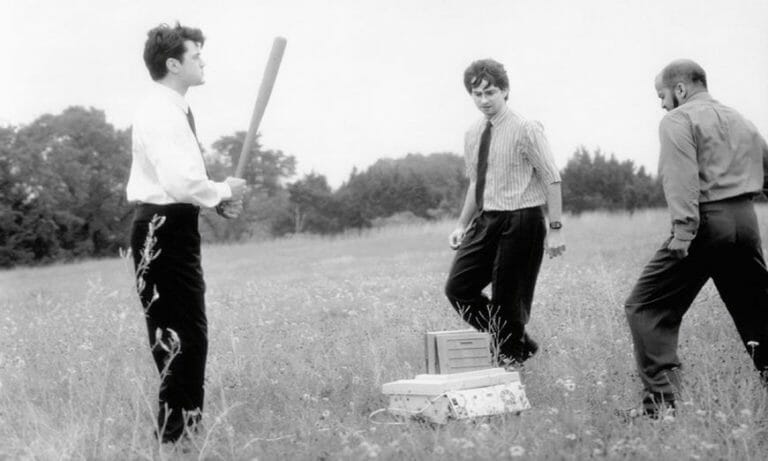By Eric Owusu · February 1, 2015

The everyman character in a workplace setting is our hero, our guide through the world of relatively normal workplace movies. The everyman character does so by doing their job and existing in their world without making waves until circumstances change in the movie. I’ll touch more on that later.
They do what they have to in order to get through the days. They are our champion in surviving the monotony and beating the workplace antagonists. They are someone who is easy to root for and they can be any gender. 1988’s Working Girl is a stellar example of a female lead who works a mundane job, but rises to the occasion to get what she wants. And the main thing audiences want to see in a workplace-set movie is a relatable “everyman” that overcomes and gets what they want.
When penning a screenplay where a likeable everyman is our main point of focus, be sure to include these elements in your construction of them and the story containing them.
Make Them A Reasonable “Everyman”
In Mike Judge’s late ninety’s comedy Office Space, we are quickly introduced to Pete Gibbons, the main character who is one of four office drones that works a boring job. He is introduced in the script as “fairly normal-looking” and stuck in traffic on his way to work. He is annoyed by the traffic and rightfully gets mad at the situation. An old man hobbling beside the traffic is moving faster than him. He also switches to lanes that look like they’re moving and they quickly become the slow lane, which leads him to bang his steering wheel and curse.
His character is one that is calm and reasonably perturbed because of the workplace hell he lives in. Audiences that work regular jobs understand his frustrations and root for him because he handles them reasonably and in ways that they would. He doesn’t quit his job, nor does he take extreme measures in getting revenge or taking his job-caused frustrations out on his workplace and coworkers (yet). Judge writes him as an everyman who uses sarcasm and humor to get through his boring days with his less annoying coworkers, like many of us do. The character of Peter is reasonable, levelheaded, and calculating and those are important characteristics to have if you want your audience to stay with your everyman.
Surround Them With Various Types of Characters
The Office Space screenplay is filled with funny caricatures of office workers that help to further normalize and magnify Peter and his existence. Milton is the strange, older employee who everyone treads lightly with and is unsure of. Lumbergh is the annoying and heartless boss. Michael is the character who is annoyed at his existence in general and his job at Initech. And Joanna is annoyed at her day job as a server at a cheesy restaurant.
These characters around our everyman are a necessary chorus, if you will, that help drive the point home that no one is ecstatic to be working at their job. Having different types of characters around your everyman that are different from them also helps normalize them and makes them more reasonable, especially when you juxtapose them to characters like Lumbergh and Milton.
Have Them Struggle With Human Problems
Peter’s inhibitions are lifted from him after a trip to a hypnotist. I felt good for Peter after that because he did what he and many working people often dream about: he stopped caring. But that state of mind wore off, as things got worse for our everyman and problems reared their ugly heads.
Peter thinks that his girlfriend used to date one of his enemies, which greatly upsets him. His scheme with his friends to hurt the company backfires, which has him very scared. Have your protagonist deal with their problems in clear ways by writing them to where they are forced to exhibit emotions. Doing so helps convey their humanity, makes for good and interesting conflict, and makes the everyman more relatable.
Let Them Overcome Their Obstacles & Remain Decent
Even though Peter and his friends avoid trouble with their scheme through chance, he still shows good moral character before the oddball Milton saves the day. Even before that, he finds a way to make things write with Joanna. When writing your workplace character, have them display decency, but overcome their problems in and out of the workplace. As with all movies, audiences like to see their relatable protagonist be hindered by conflict and obstacles, but they love to see their protagonist win. Throw your everyman a win or two in your screenplay. They’ve more than worked for it.